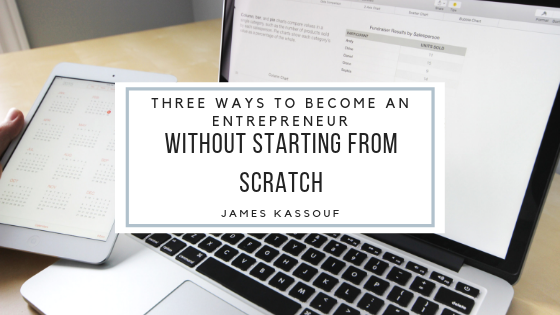Each way to become an entrepreneur without starting from scratch has its own benefits and disadvantages.
Purchase a Business
A key benefit of buying an existing business is it has a track record of success. In addition to a proven business model, an existing business should have established customers and suppliers. Another advantage is someone else has paid the start-up costs, which can be substantial in some industries. Often experienced employees are already in place, which eliminates the time and expense of hiring. Carefully evaluating the business before purchase is essential. Research should include learning why the company is for sale, verifying all financial data, and determining the condition of equipment and facilities. If facilities or equipment are in need of repair or replacement, that should factor into the sale price.
Open a Franchise
Franchisees also get the benefit of an established brand with a proven business model. A franchise doesn’t offer the complete flexibility of other business types. However, a franchise owner can do a lot to make his or her location successful such as making good hires and creating a healthy workplace culture.
During due diligence, potential franchise owners should try to find out if their personalities are a good fit for the brand. They should learn as much as possible about the franchisor, including how long they’ve been operating and the franchise success rate. In addition, they should speak with successful and unsuccessful franchisees. The goal of those conversations is to learn best practices, what the franchisee would do differently, how long it took to be profitable, and what led to their success or failure.
Participate in the Gig Economy
One advantage of building a business through the gig economy is most gig work can be done part-time while working a full-time job. Some gig workers opt to leave employment for the location freedom and flexible hours of full-time freelancing. In recent years, gig economy apps often handle the more difficult aspects of freelance work such as collecting payments, marketing, and landing clients. Although driving for hire apps like Uber and Lyft may be the most familiar gig economy apps, freelancers can start a business in many other fields with these apps. Gig economy apps for independent caregivers, massage therapists, delivery drivers, movers, and data scientistsrepresent a sample of the available industries.

